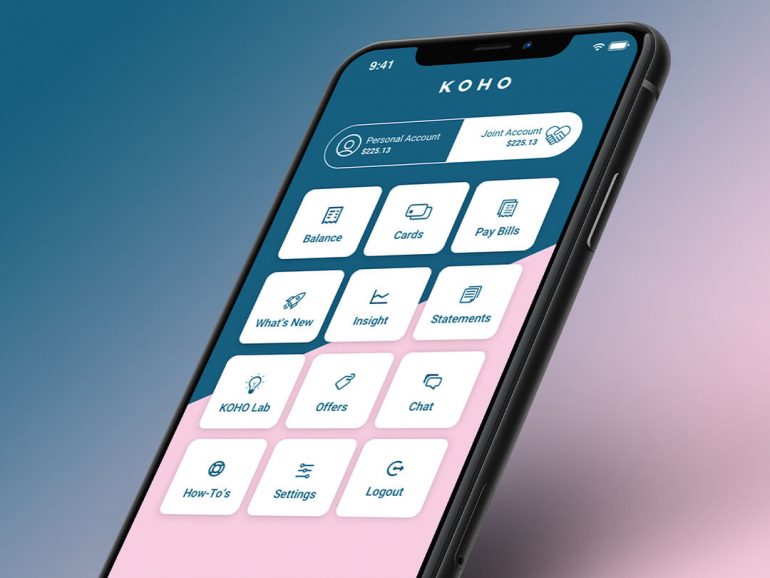Today, Toronto-based Koho launched its joint account feature, allowing users to share finances with their partner, family member, or friend using a joint prepaid Visa card.
“We want to redefine the way Canadians see banking by giving them products that fit their lives, regardless of relationship status.”
Shared account holders will have their own private account in addition to the joint account, which includes expense tracking and shared savings goals. Through the app, both users are able to deposit money, send e-transfers regularly, and reload their joint account with a prepaid Visa card. A physical and a digital version of the card is provided.
The joint account notifies the other account holder whenever money is spent, but personal account spending is kept private.
“We’re on a mission to redefine the way Canadians see banking by giving them products that fit their lives, regardless of relationship status,” said Daniel Eberhard, CEO and founder of Koho. “We’re constantly looking for ways to disrupt the status quo, to give Canadians the tools and products they’ve been asking for, and to make financial security accessible from PEI to the Yukon.”
Koho allows Canadians to use a reloadable Visa card in conjunction with its app to help users keep track of their finances, as an alternative option to traditional banks. In 2016, Eberhard told BetaKit that he was expecting feedback and feature requests from users to make Koho a great service. The joint account feature was the most requested, and so it was implemented, according to Koho.
Related: Koho’s Daniel Eberhard says FinTech success is about understanding customers’ psychology
The FinTech startup, looking to disrupt the Canadian banking system, has been backed with investments from Portag3 Ventures, as well as Power Financial Corporation, which has invested in other alternative FinTech services including Wealthsimple, Borrowell, and League. Koho was previously founded in Vancouver, but moved their operations to Toronto in 2017.
In 2017, Koho raised $8 million from Portag3 Ventures, after securing funding from Power Financial Corporation and other angel investors a year before. In 2015, it also raised $1 million seed round. That same year, Koho partnered with Visa, Peoples Trust Company and Galileo Processing in preparation for launching its banking service.
When Koho’s app was initially launched in 2017, it was targeted towards millennials. However, ages 18 through 65 were found using the app, with a considerable percentage in the “older” millennial and Gen X range. Koho says its mobile solution can “win Canada” from the big five banks, as it takes users 3 minutes to set up an account.
Eberhard sees Koho and FinTech startups in general, as playing a major role in changing the Canadian banking landscape, but said there’s still a ways to go. He told BetaKit in 2017, “the FinTech community in Canada is behind. Our companies and talent are world-class but we’re unpacking a heavily centralized regulatory environment and an audience that is used to a Big Five banking environment. FinTechs are going to play a key role in keeping the Canadian banking climate competitive but we have a lot of work to do in making sure the Canadian banking sector stays strong in the long term.”
BetaKit has updated this article to reflect changes in Koho’s headquartered location on February 6th, 2019

